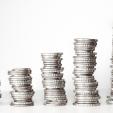Dollar credibility affected by US political deadlock

The current political deadlock over the US budget and debt ceiling could impact the credibility of the dollar, QNB said in a report.
The US administration began a partial government shutdown after Congress failed to agree on a new budget by October 1. As a result, more than 800,000 non-essential federal employees (out of 2.1mn) are facing unpaid leave.
In addition, the deadline of October 17 to increase the US debt ceiling in order to avoid an unprecedented default on US government debt is fast approaching.
The likelihood that this political deadlock continues past the October 17 deadline is small, given its catastrophic implications for the US and the world economy, QNB said. However, the credibility of the US dollar as the world reserve currency could be tarnished.
The political deadlock over the US budget is likely to have a small and temporary effect on US economic growth.
The lack of a political compromise over the US budget has meant that the corresponding appropriations for various government services were not approved by October 1, the start of the new fiscal year.
Once Congress fails to appropriate funds, the US government has to shutdown (with the exception of essential services) as it is unable to pay for its employees or goods and services.
Government shutdowns are disruptive but not uncommon in the US, as they have been used in the past to force either political party to concede on key policy measures.
The last US government shutdown occurred in 1996, when the Republican-led Congress unsuccessfully sought to force President Clinton to cut medicare, education, and environmental programmes.
The economic impact of a government shutdown is estimated to be small (in the range of 0.1%-0.3% of GDP) and likely to be temporary as the eventual approval of the budget will restore all the functions of the US government.
The political deadlock over the US debt ceiling is different and significantly more dangerous.
Congress has placed a ceiling on how much debt the treasury can issue since 1917 in order to impart fiscal discipline. These ceilings need to be increased by law each time US government debt approaches the ceiling in order to avoid default.
The US Treasury reached the current debt ceiling of $16.7tn on May 19. Since then it has temporarily cut its borrowing from various internal accounts, using the resulting room to keep issuing US Treasury bonds and bills.
However, the US Treasury has warned that it will have to default on US government debt unless Congress raises the ceiling by October 17.
A default on US government debt would be catastrophic for the US and world economy. Ratings agencies would automatically need to classify all US government debt in default.
This would force institutional investors around the world, including central banks, to sell their holdings of US government bonds, as they have statutory requirements to hold only investment-grade assets.
The US government would then no longer be able to rollover a large portion of its debt, let alone issue new ones.
For the US economy, the lack of debt instruments to finance government spending would mean reneging on its other obligations, including social security, medical payments, military deployments and food stamps.
A large portion of the US economy would therefore grind to a halt. For the world economy, it would imply a loss of the reserve currency that anchors the global financial system, with severe instability in exchange and bond markets. This would inevitably result in a sharp global recession.
In light of these catastrophic consequences, QNB expects that Congress will pass a new budget and increase the debt ceiling in the coming days.
Nevertheless, the political deadlock over the last couple of weeks has created an atmosphere of uncertainty that could affect confidence, investment and growth in the US.
More importantly, the credibility of the dollar as the world’s reserve currency could be affected, as global investors seek to mitigate the risk of a future political deadlock.
Overall, without political collective commitment, it is unlikely that the S dollar will continue to remain the world’s reserve currency.













